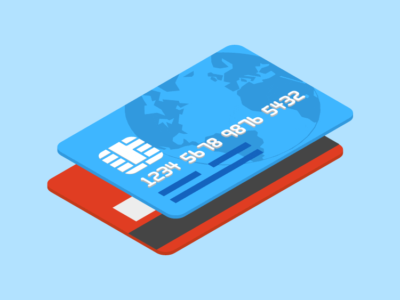Credit Information Bureau of India Limited (CIBIL) is India’s first credit bureau that gathers details of a borrower’s credit history to map out the credit score based on a borrower’s credit history. CIBIL score is one of the first things that lenders look at when evaluating your loan application. This information helps the banks and lending institutions to evaluate the creditworthiness and repayment ability of a borrower before approving any loan applications. Once a loan application is submitted to the lender, the lender checks the CIBIL score and report of the applicant. It works as a kind of first impression for the lender. In case the credit score is low, the lender might reject the application without considering it further.
If the credit score is high, the lender might look into other details to determine if the applicant is creditworthy. Thus, a good credit score increases the chances of your loan application being approved. Credit score generally ranges between 300 and 900, wherein score closest to 900 is considered as better to avail loans on low-interest rates from lenders. While many of the perks of a high credit score, such as a good loan interest rate, are quite well-known, others are taken advantage of less often. The higher your credit score, the better are your chances of being approved for a new loan or credit card. Apart from the credit history, there are other factors that may impact your credit scores such as your credit utilization ratio, number of outstanding loans, loan servicing term and percentage of unsecured loans.
What’s a Good Credit Score?
CIBIL report compares the credit history of the past three years in the calculation of the applicant’s credit score. Apart from the credit history, there are other factors like the credit utilization ratio, outstanding loans, loan servicing term and percentage of unsecured loans in the portfolio that may impact the credit score. Generally, your credit score ranges between 300 and 900, wherein score closest to 900 is considered as better to avail loans on a lesser rate of interest from lenders. You can get a CIBIL Score check online free and you will receive a digital copy of your free CIBIL report within the next 48 hours.
Benefits of a Good CIBIL Score for Personal loan
- Quick Approval of Loan
Your credit score gives the impression to the lender about your creditworthiness. Therefore, the first step in the loan approval process is to check with your credit score. If you manage to maintain a good CIBIL Score, the loan approval process gets much easier and the lender will find you eligible for a loan.
- Lower Interest Rates on Loan
If you have a high credit score, you can avail more benefits on your loan. Maintaining a high credit score gives you the opportunity to bargain for a lower rate of interest with your lender. On the other hand, if you have a low credit score you don’t have access to any negotiation option. In fact, you may have to pay a higher interest rate to compensate for your low credit score.
- Easy Credit Application
Borrowers with a poor credit history typically avoid applying for a credit card or a loan, as their application has higher chances of getting turned down easily. On the other hand, a good credit score increases your chances of being approved for new credit.
- Approval of higher limits
Your borrowing capacity is based on your monthly income and your credit score. A good credit score demonstrates that you ensure timely repayment of the loan. However, you may still get approved for some loans with a bad credit score, but the amount will be limited.
Ways to Improve Your CIBIL Score
If your score is low here are a few ways to improve your credit score:
- Make timely payment of your loan dues. It shows responsible credit behaviour and repayment ability.
- You need to have a good credit mix in your credit history of secured and unsecured credit. Having too much-unsecured credit like personal loans and credit cards makes lenders consider you as a risky borrower and may decrease your credit score.
- Check your credit report for errors and fraudulent usage of data/information. If found any this needs to be reported and rectified in a timely manner.
- Reduce your credit utilization. Try and limit your credit utilization to a maximum of 30% of your available credit limit. Spending more than 30% of the available credit shows excessive reliance on credit and reduces your credit score.
- Avoid applying for multiple loan applications and inquiries within a short period of time. This may increase the number of hard inquiries on your credit report and adversely affect your credit score.
- Ensure you pay off your debts instead of settling them. Though settling may reduce the debt burden, it shows an inability to repay your debts and adversely affect your credit score.








Comments